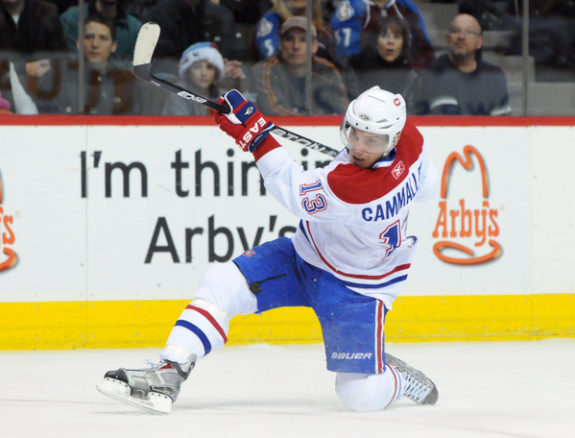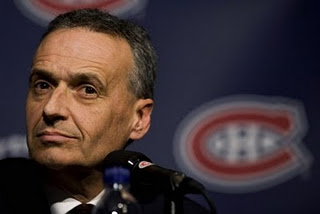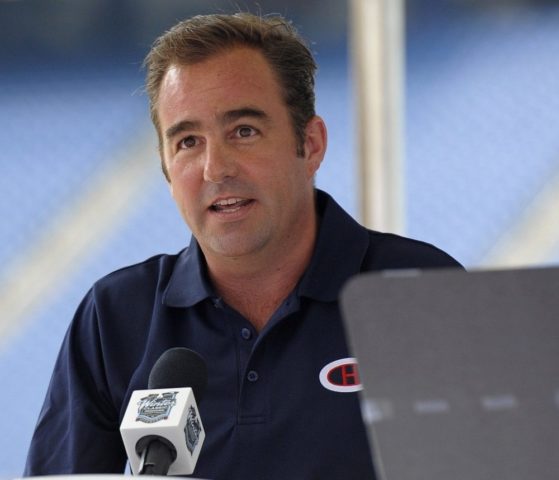Concerns about the Montreal Canadiens’ inability to land top talent through free agency is not new. General manager Marc Bergevin has been under fire for six years for focusing on bringing in players who fill minor roles instead of looking for established stars. Recent moves suggest he’s focused on building a contender through draft picks and trades, a good decision considering the reluctance of top players to come to the city.
Those reluctant to play here cite the usual gripes about Montreal — taxes, the weather, and the ever-intrusive media. An NHL community of 700+ players and their agents is basically a village and anyone who grew up in one knows that people talk, especially about negative experiences.
Since 2012, the Canadiens have been active in the free agent market with little success. Their most productive signing, Alexander Radulov, was considered a pariah before he left the NHL, twice forsaking his team for the KHL. Other star players like Daniel Brière and Tomas Fleischmann were well past their primes when they signed with the Habs, and Karl Alzner, the most recent “big” signing, played only a small part in the Washington Capitals’ winning seasons.
In 2011, GM Pierre Gauthier signed forward Erik Cole to a five-year contract. At 32, Cole was still in his prime, rebounding from an injury in 2008-09 to score 26 goals and 52 points for the Carolina Hurricanes the following year. He had his best season with the Habs in 2011-12, scoring 35 goals and 61 points as one of the few bright lights in a disastrous year, when the team had a losing record and were out of the playoffs. Cole’s performance that season was overshadowed by one event that still resonates many years later.
Mike Cammalleri’s Sudden Trade
On Jan. 12, 2012, forward Mike Cammalleri was traded to the Calgary Flames in the middle of a game in exchange for Rene Bourque. The Canadiens also received prospect Patrick Holland and a second-round pick in the 2013 NHL entry draft. The Flames picked up goaltender Karri Ramo and a fifth-round pick in the 2012 draft. The trade came after Cammalleri criticized his teammates’ attitude following practice the previous day.

The team was quick to defend the trade, citing it had been in the works for a month and had more to do with acquiring size up front than the recent incident. Calgary won the trade. Despite injuries, Cammalleri would score 77 goals over his next 200 games, while Bourque was invisible, coming alive only during the team’s 2014 playoff run.
Cammalleri had had a solid, if somewhat injury-plagued, tenure with the Canadiens. Acquired by former GM Bob Gainey through free agency in 2009, he scored 26 goals and added 13 in the playoffs during the 2009-10 season, when the Habs made an improbable playoff run after sneaking into the final berth.
His next year-and-a-half was less impressive, but he remained among the team’s top scorers, playing under the defensively-minded, but somewhat successful, head coach Jacques Martin. Never one to hold his tongue, Cammalleri was often the best post-game interview, and he was quick to defend his comments after that fateful practice by clarifying he was referring to the team’s attitude, not the players themselves.
Gauthier Deserved the Blame Over Cammalleri
After a mediocre career as general manager of the Ottawa Senators and Anaheim Mighty Ducks, Gauthier was hired by the Canadiens in 2003 and spent the next seven years with the Canadiens as a scout and an assistant to Gainey before assuming the top job in 2010.
The 2011-12 season was an indictment of Gauthier’s inability to handle pressure. He fired assistant coach Perry Pearn in October, Martin in December, and even after the Cammalleri trade, he sent penalty-killing and shot-blocking specialist Hal Gill to the Nashville Predators for Blake Geoffrion — a marginal player known mostly for being the grandson of Hab’s legend Bernie “Boom Boom” Geoffrion. He too was fired before the end of the season, and despite a successful run as director of player personnel for the Chicago Blackhawks, he has not worked as a GM since.

His handling of the Cammalleri trade also sent a message to the league that the team would not tolerate dissent. With the media already breathing down their necks, players would have to be more careful in choosing their words in interviews, an added pressure few would relish. After all, emotions after a tough loss are as hard to control as the Montreal weather.
Although his tenure may have seemed typical of an NHL executive, it also reflected the Canadiens’ habit of rewarding loyal members of the organization with jobs instead of looking externally for the best talent available. This meant the attitude of management towards the players would likely continue unchanged, discouraging many from wanting to play for the team.
Cammalleri’s Comments Are Still Relevant
Six years later, Marc Bergevin decided to take a different approach. After assessing another disappointing season and missing the playoffs in 2018, owner Geoff Molson and Bergevin again blamed the club’s failures on a poor attitude, matching the same comments Cammalleri made six years earlier. However, this time he decided that changes at the coaching level would not be restricted to candidates within the organization.
By the end of April, assistant J.J. Daigneault and Laval Rocket coach Sylvain Lefebvre — who both joined the Habs as players in the late 1980’s — were gone, replaced by Dominique Ducharme and Joel Bouchard respectively. The new coaches did not have a Canadiens’ pedigree, but were successful at the junior level, especially with young talent. In July, Bergevin added Luke Richardson to the staff, solidifying his resolve to make changes by hiring talent with no previous connection to the team.

The message was clear. Bergevin understood the problem in the dressing room could not be resolved without changes to the team culture at all levels. He also committed to greater transparency with the fans and media, perhaps learning from his experience with the P.K. Subban controversy two years earlier.
Some things are certain — Canadian teams will continue to be at a disadvantage in the free agent market and the Habs will always have to find ways to work with the Quebecois fanbase and media. However, players who notice their willingness to make changes at the organizational level may reconsider the team as a possible destination once their contracts expire.